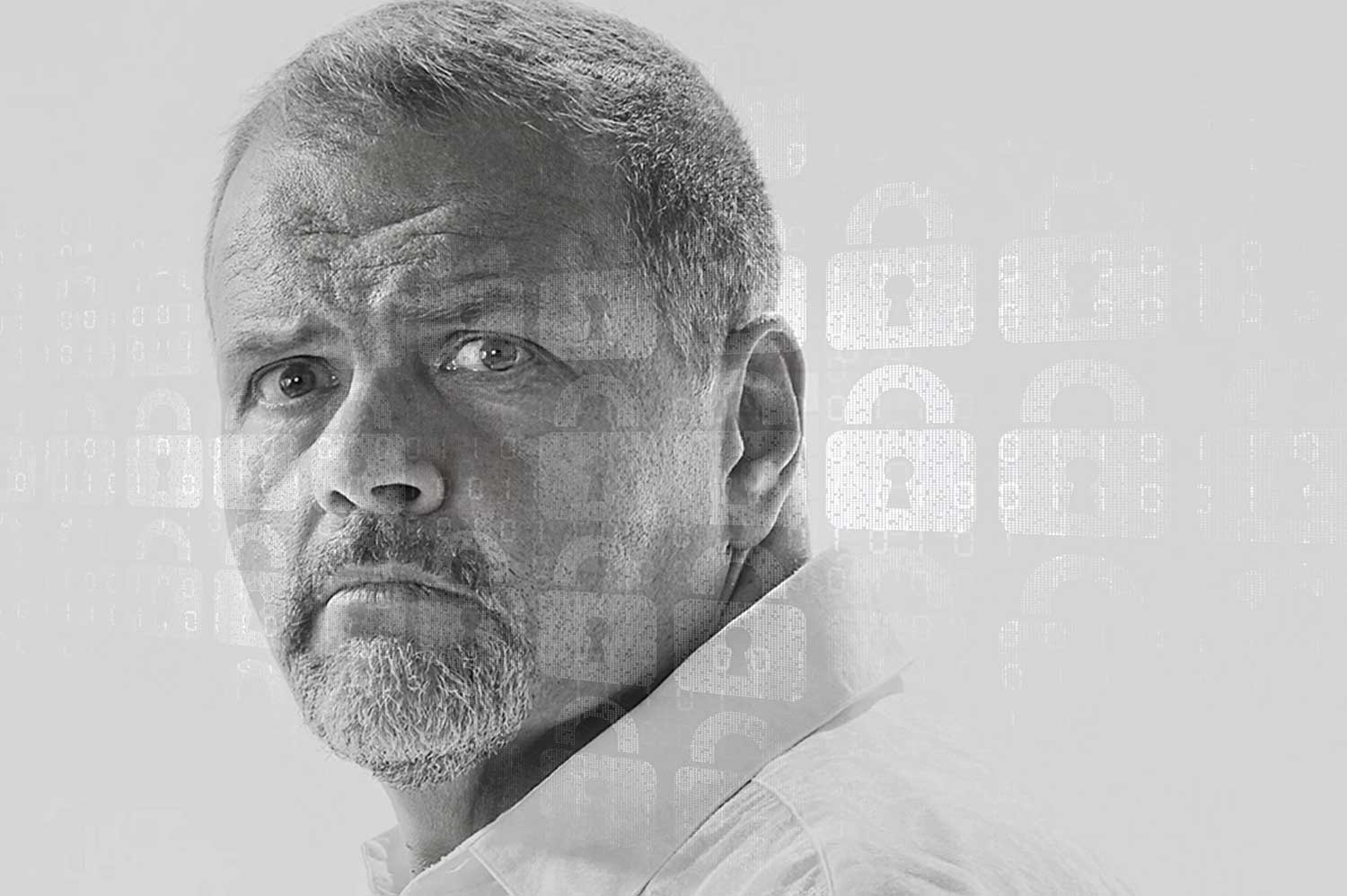
14 Apr Former Street King Of Cybercrime Tells His Life Story On This Podcast
‘Original Internet Godfather’ Brett Johnson bares all Listen to the Podcast
 – Steve Morgan, Editor-in-Chief
– Steve Morgan, Editor-in-Chief
Sausalito, Calif. – Apr. 14, 2020
Brett Johnson did the (cyber) crime, and then he did the time. Seven and a half years in prison, eight months of it in solitary confinement, after he was convicted of 39 felonies. He escaped, was captured and did a second stint. Years later, a repeat offender, he spent another ten months behind bars.
Some people know Johnson for being named by the U.S. Secret Service as the ‘Original Internet Godfather,’ the man who built the first organized cybercrime community, Shadowcrew, the precursor to today’s Darknet markets. Others know him for pocketing $160,000 a week, ten months out of the year — by filing tax returns for dead people. Still others know him for selling a massive amount of fake merchandise on eBay and other online stores.
He might as well be called the former street king of cybercrime. While other famous cybercriminals may have been too curious for their own good and hacked their way into top-secret government data troves or corporate networks, Johnson was after the money, plain and simple. He makes no bones about it. For years leading up to the launching of Shadowcrew, Johnson ripped off a long list of everyday folks on his way to becoming a made man. If a victim knew who he was, as was often the case, then he used stall tactics — which worked every time.
Cybercrime Radio: Former Street King of Cybercrime Tells His Life Story
‘Original Internet Godfather’ Brett Johnson bares all
Why does someone choose a life of crime? In Johnson’s case, he was trained in the craft, when he was just ten-years-old, by his mother. There were other indiscretions by his mom, and Johnson doesn’t hold back. Nor does he hold a grudge.
Do cybercriminals go to college, and what do they study? Johnson earned a bachelor’s degree from the University of Kentucky, where he studied … no surprise … acting.
Is cybercrime an addiction? Johnson says it’s much the same as being an alcoholic, and now he’s a recovering cybercriminal. One day at a time, he doesn’t steal. It’s gotten easier in the years since he gave up his identity as a cyber thief, but he knows that it can come back to haunt him at any time.
When a cybercriminal gets locked up, how do they stay current on the tricks of the trade? In Johnson’s case, it’s more a matter of the mindset — something that he kept fresh in the slammer. That is, until his sister visited him for a life-changing moment. “I love you,” when it really comes from the heart, has a way of healing and changing people for the better.
Who hires a rehabilitated man that used to run a cybercrime ring with 4,000 members? The FBI, Microsoft, Lexis-Nexis, ThreatMetrix, VISA, Identity Guard, AARP, Emailage, MWAA, Elavon, TED, ISMG, Neustar, BBWest Bank, and numerous others. Johnson was surprised at first, and he really appreciates the business.
If this all sounds like some made-up story or napkin scratch for a graphic novel about cybercrime, then listen to the podcast. It’s Johnson’s true-life story, told by him, to Cybercrime Magazine.
Be careful. Johnson’s charming Southern accent may have you wanting to be phished. Even as a white hat, he knows how to reel em’ in — to his website at AnglerPhish.com.
– Steve Morgan is founder and Editor-in-Chief at Cybersecurity Ventures.
Go here to read all of my blogs and articles covering cybersecurity. Go here to send me story tips, feedback and suggestions.



